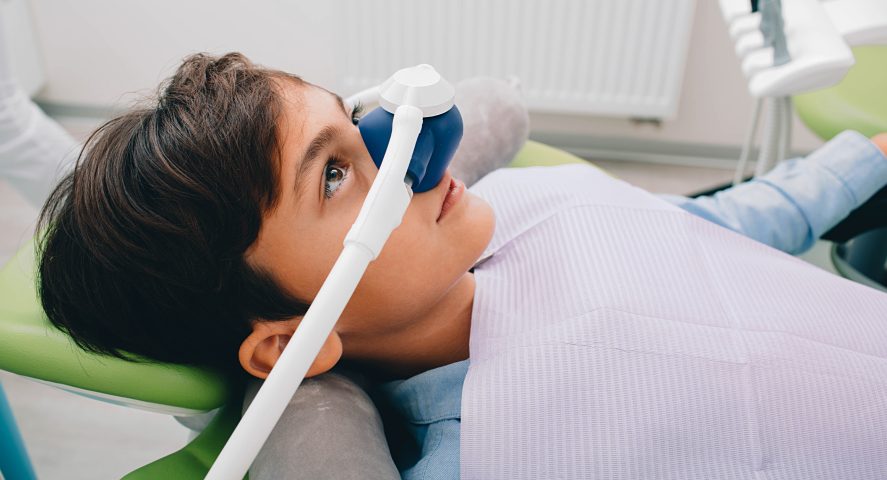 What Is Sedation Dentistry?
What Is Sedation Dentistry?
Sedation dentistry uses medication to help you relax during dental procedures. It may be used to calm anxiety during a routine cleaning or keep you comfortable during a lengthy procedure.
In most cases, dental sedation is minimal—you are awake but relaxed—or moderate. Moderate sedation, sometimes called conscious sedation or “twilight sleep,” creates a state of short-term forgetfulness. During the procedure, you are conscious but unbothered by your surroundings.
Unconscious sedation is not used in the typical dental office setting but may be used for specific dental and periodontal procedures. Learn more below.
 What Types of Sedation Are Used in Dentistry?
What Types of Sedation Are Used in Dentistry?
There are levels of sedation dentistry that are appropriate for different situations. Your dentist will help you determine the best solution. For most types of sedation, you will also receive a local anesthetic to numb the treatment area and relieve pain.
Nitrous Oxide (“Laughing Gas”)
This is the most common type of dental sedation, available in nearly all dentist offices. You breathe nitrous oxide combined with oxygen through a mask or nosepiece. Within minutes, the gas provides minimal sedation that helps you relax.
Your dentist controls the amount of sedation and adjusts your dosage as needed. After the procedure, they administer pure oxygen to flush the nitrous oxide out of your system. The effect wears off quickly. In most cases, you can drive yourself home after your treatment.
Oral Sedation
With oral sedation, you take a pill about an hour before your procedure. The pill delivers minimal sedation and makes you groggy. If you need moderate sedation, your dentist may increase the dose. It’s not unusual to fall asleep under moderate sedation, though you can be awakened easily without counteracting medication.
Oral sedation takes longer than nitrous oxide to wear off, so you need a trusted person to drive you home after your procedure. You will need to wait 24 hours before driving or returning to work.
Intravenous (IV) Sedation
IV sedation is used for severe dental anxiety or more invasive procedures. It is a form of moderate sedation delivered into the bloodstream through an IV. The dentist monitors your vitals throughout the procedure and can adjust your dosage accordingly.
You will likely fall asleep under IV sedation and have little or no memory of the procedure. You will need a trusted person to drive you home after your treatment and wait 24 hours before driving or returning to work.
Deep Sedation and General Anesthesia
Under general anesthesia, you are unconscious. Deep sedation makes you nearly unconscious. You won’t remember “being under” during the procedure, and you’ll need a trusted person to drive you home and monitor you afterward. You must wait 24 hours before driving, working or resuming normal activities.
These forms of sedation aren’t found in the typical dental office setting. They may be used in hospitals or outpatient surgical centers for more invasive procedures or to treat people with special needs. They require highly specialized training and are typically delivered by oral surgeons or dental anesthesiologists.





